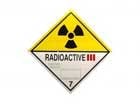Pennsylvania Gov. Tom Corbett this week said weekend testing of public drinking water found no elevated levels of radioactivity.
On Friday, concentrations of iodine-131, likely originating from the events at Japan's damaged nuclear plants, were found in rainwater samples collected from Pennsylvania's nuclear power plant facilities.
The numbers reported in the rainwater samples in Pennsylvania range from 40 to 100 picocuries per liter (pCi/L). Although these are levels above the background levels historically reported in these areas, they are still about 25 times below the level that would be of concern. The federal drinking water standard for iodine-131 is 3 pCi/L.
As a result of the findings, Corbett immediately ordered the Department of Environmental Protection's Bureau of Water Quality, Radiation Protection and Laboratories to test the drinking water from six regions in the state.
Samples were taken from facilities in Norristown, East Stroudsburg, Harrisburg, Williamsport, Greenville and Pittsburgh. After repeated testing throughout the weekend, results showed normal levels of radioactivity and no iodine-131 above the federal limit. In fact, no iodine-131 was detected in the drinking water samples.
On Friday, rainwater samples were taken in Harrisburg, where levels were 41 pCi/L and at nuclear power plants at TMI and Limerick, where levels were 90 to 100 pCi/L.
Corbett emphasized that the drinking water is safe and there is no cause for health concerns. State officials will continue to carefully monitor the situation, Corbett said, and will keep the public informed.
Rainwater is diluted by water in reservoirs and rivers or filters through the ground and it is treated before reaching consumers as drinking water, so it would not be expected to be a concern in public water systems.
While the radioactive element is believed to have originated from Japan's damaged Fukushima Daiichi nuclear power plant, it is not considered to be a health risk in Pennsylvania or anywhere else in the country. Similar testing in other states, including California, Massachusetts and Washington, has shown comparable levels of iodine-131 in rainwater samples.
Pennsylvania residents should not take potassium iodide (KI) pills, Corbett advised. The pills are to be taken only during a specific emergency and only at the recommendation of public health officials or the governor.
Additionally, the elevated levels of radioactivity found in the rainwater on Friday were still well below levels that could pose any harm to pets or livestock.
Source: PR Newswire


